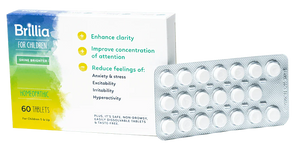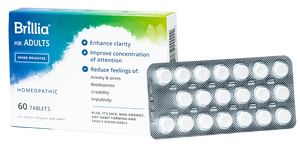by Aprel Phelps-Downey
In the blink of an eye, your little girl is now a teenager. It’s a new chapter in both of your lives—one that will bring challenges alongside celebrations that will catch you both off guard at times. One challenge that will be difficult at first is having your teenage daughter experience her period for the first time. Knowing how her body may handle premenstrual syndrome (PMS) and how you can help will benefit both of you.
Talking About Premenstrual Syndrome
As the parent, you are familiar with PMS, how it can feel and what to expect each month when it arrives. For your daughter, going through the experience for the first time can be scary. You can help ease some of that uncertainty by sharing some of the more common symptoms with her. Talk about how PMS generally occurs 4 days prior to her period arriving and how she will notice changes in her mood and body around that time. These symptoms typically begin to subside within 2 to 3 days of her period starting.
You will likely notice her PMS symptoms before she notices what is happening. Help her learn to recognize common signs such as mood swings, in which she goes from a place of extreme sadness to irritability for seemingly no reason at all. Along with mood changes, she may also notice feeling more tired than usual and craving certain types of food.
Teach her to be conscious of these psychological changes as well as physical changes such as tender breasts or stomach bloating. Giving her the tools to practice mindfulness and meditation can also be beneficial in managing her PMS, especially if she suffers from anxiety as well.
Can PMS Cause Anxiety?
Anxiety can stem from the thoughts and feelings your daughter has about the situations she faces each day. When these same thoughts or feelings arise as she’s experiencing PMS, things can get out of hand quickly. The presence of PMS sends your daughter’s cortisol hormone levels skyrocketing, causing your daughter’s level of stress and anxiety to take off as well.
Knowing that PMS signifies a period of time when her body will look and feel uncomfortable can cause your daughter to become fearful of her period each month. That fear may result in a hormonal imbalance that works against her body’s natural response to managing her anxiety.
With the inability to manage the production and response of her hormones, her body will have difficulty reacting to feelings of stress or anxiety. When combined with the PMS symptoms discussed earlier, your daughter will feel lost. While you can’t take the pain away, there are a few things you can do that will help her.
How You Can Help Ease Her PMS Anxiety
The first step in helping your daughter with her PMS is finding comfort in understanding that knowledge is power. For mothers, remember that you’ve been dealing with PMS and period issues for a lot longer than your daughter. That experience will be beneficial in helping your daughter make it through this new chapter of her life. A good starting point is thinking about what helps your body when you’re facing PMS. Those coping tools that help you will likely benefit your daughter since you two share DNA and other characteristics.
Essential oils can also be your friend when helping your daughter cope with PMS anxiety. Focus on relaxation-inducing scents, such as lavender, sweet orange or jasmine to help calm her nerves and unwind from the stress she’s feeling. Adding fruits and vegetables to her diet will help ease any stomach bloating that occurs during PMS. Gently encouraging her to engage in a physical activity for a minimum of 20 minutes each day will help with her mood swings, which will benefit both of you. She may find yoga or a walk around the block enjoyable even when she’s not feeling her best.
When all else fails, you may find the best way to help your daughter survive PMS is by grabbing a heating pad, a bowl of chocolate snacks and snuggling up on the couch with your sweet girl. It’s now my favorite treatment option when I think about how to help my daughter with depression and anxiety.

About the Author:
References: 1. https://kidshealth.org/en/teens/menstrual-problems.html2. https://www.calmclinic.com/anxiety/causes/pms3. https://www.betty.me/parents/help-teen-deal-pms/






